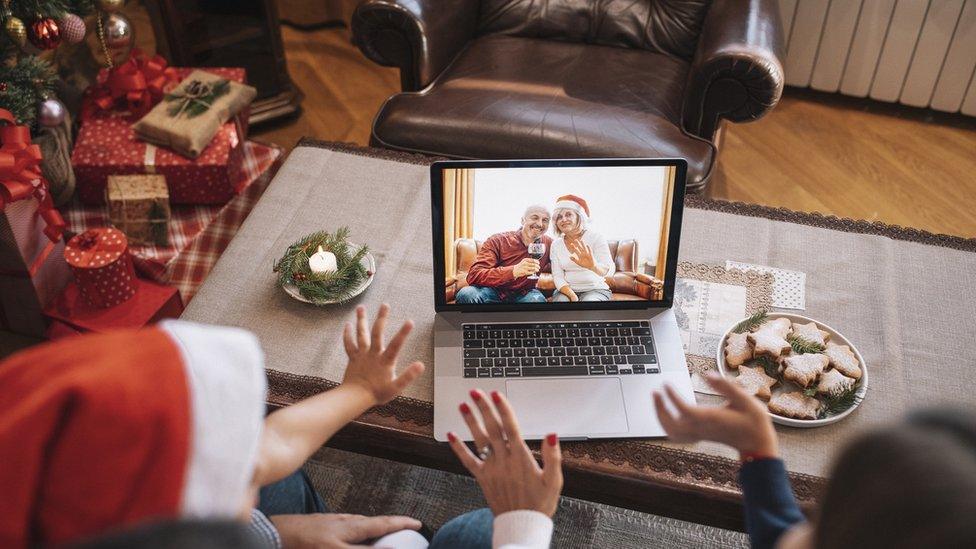Covid cases 'up almost a third in week after Christmas'
- Published

Covid infections rose by almost a third between 26 December and 3 January, reaching 70,000 new cases a day according to a major study, external.
In a different piece of research, the Office for National Statistics (ONS) estimated 1.2 million people in total had Covid over a similar time period.
Daily infections are understood to have risen to about 150,000 since then.
That would bring daily coronavirus cases above the first peak.
The R or reproduction number for the virus is now between 1 and 1.4 for the UK, external, reflecting the sharp rise in cases in recent weeks.
Separate ONS data, external suggests just under half (44%) of British adults formed a Christmas bubble.
These temporary rules let up to three households mix indoors on 25 December - unless they were living in a Tier 4 area.
The ONS estimated how much of the population had Covid in the week of 27 December- 2 January:
One in 50 in England (up from one in 70)
One in 70 in Wales (down from one in 50)
One in 200 in Northern Ireland (up from one in 230)
One in 115 in Scotland (up from one in 145)
The ONS data suggests cases rose by three-quarters between its two most recent study periods: 12-18 December and 27 December - 2 January.
The ZOE Covid Symptom Study was able to track more recent changes since there was no pause in its research for Christmas.
It found the epidemic is growing throughout the UK.
Researchers estimate the virus's reproduction or R number is currently 1.2 across the UK.
Both sources indicate London has the most severe epidemic with the highest number of cases.
Confirmed cases, published on the government's dashboard, are always lower than those in surveys because they mainly reflect the test results of people coming in with symptoms.
Both the ONS and ZOE also look at asymptomatic cases - people who may not otherwise get tests.
Some asymptomatic testing is now available in the community but it is not being widely taken up.
Christmas bubbles
About a fifth of people responding to a separate ONS survey looking at the social impacts of the pandemic, said they had found it difficult to follow the Christmas rules.
And half of those gave the fact that they had already made plans as the reason.
Rules, which were set to allow everyone in the UK to mix in a five-day window, were changed at the last minute, on 19 December.
In England, people living in Tiers 1-3 were allowed to form a one-day Christmas bubble with a maximum of two other households.
Those in Tier 4, including about 10 million people in Greater London, were not permitted to mix at all.
Mixing was permitted in Scotland and Wales for Christmas Day only.

How has coronavirus affected you? Email haveyoursay@bbc.co.uk, external.
WhatsApp: +44 7756 165803
Tweet: @BBC_HaveYourSay, external
Please read our terms & conditions and privacy policy
Or use this form to get in touch:
If you are reading this page and can't see the form you will need to visit the mobile version of the BBC website to submit your comment or send it via email to HaveYourSay@bbc.co.uk, external. Please include your name, age and location with any comment you send in.
